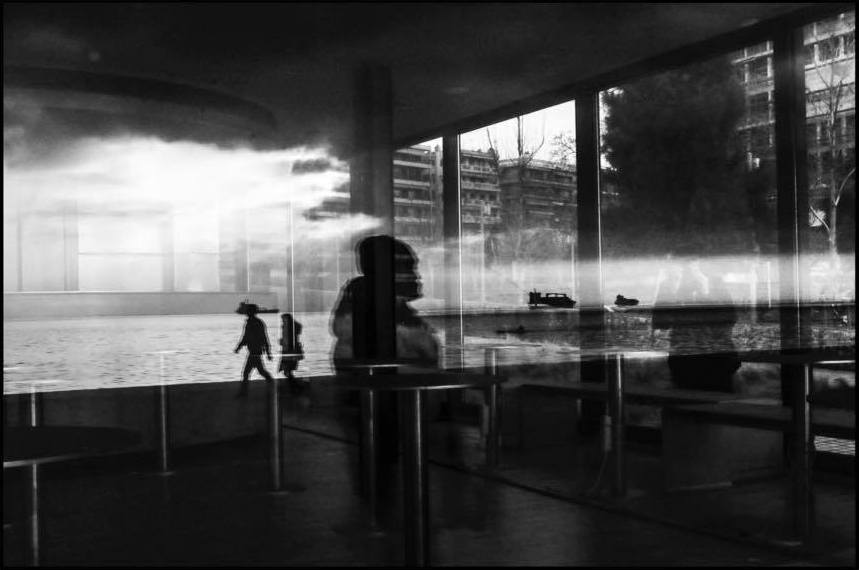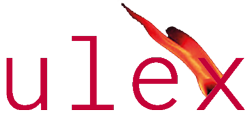“Somatics is a freedom-inducing framework. The central idea is that the natural living body–with its sensations, memories and emotions, triggers and pleasures–is a complex system that carries our whole lives, including trauma and healing, boundaries and risks, patterns and transformation.” –Adrienne Maree Brown, author of Emergent Strategy and Pleasure Activism
Over the last decade a more nuanced understanding of the impact of trauma has become more culturally widespread for many working for social justice. With this a recognition of the importance of trauma-informed work for developing long-term strategies for resilience has grown. We caught up with Lou Hemmerman, Ulex course designer and trainer of Resourcing Resilience : Working with Trauma, about how trauma-informed practice is essential for the health of our social movements, and her current work on a new migrant solidarity project across Spain, Ireland, Greece and Italy.
: Working with Trauma, about how trauma-informed practice is essential for the health of our social movements, and her current work on a new migrant solidarity project across Spain, Ireland, Greece and Italy.
Tell us a little bit about your journey Lou and what drew you to this work.
By training I am a sociologist and wrote my doctoral thesis in Leeds in 2006. Then I took up full-time activism, becoming involved with the UK Camps for Climate Action between 2006 and 2009. That led to a high-profile direct action and a long drawn out legal process, resulting in burn-out. This journey prompted me to look for healthier, regenerative pathways. So, in 2010 I became involved with a Ulex Project programme focused on activist psycho-social resilience called Sustaining Resistance Empowering Renewal. Around that time, I moved to Catalunya and began to focus my work around this theme. It includes ongoing research/learning partnerships with participants and trainers aimed at refining our understanding of burn-out and strategies for regenerative activism.
How has your understanding broadened over the last decade, moving from a first-hand experience of activist burn-out to a more nuanced analysis?
Burnout experiences are complex and highly subjective, manifesting due to a range of different contexts from person to person. Saying that, through my research with activists over the years, there have emerged 6 key commonalities that a person with burn-out might experience:
1. A sense of insufficient time/space/resources to work through intense experiences – leading to feelings of overload
2. A lack of recognition around boundaries/limits leading to overstretch/ overestimation of energetic capacity
3. A lack of response to or awareness of signals of toxic stress in the body – often due to guilt or deprioritising personal needs
4. A feeling of “stuck-ness” in the body – this may show up as toxic stress and/or elevated activation levels thus maintaining a level of “allostatic load” that leads to adrenal exhaustion and collapse
5. Blocked or unacknowledged emotional pain/grief relating to experiencing and/or witnessing trauma/helplessness/disempowerment
6. An experience of a ‘moral injury’ and/or a crisis in values, identity or faith in the possibility of change.
Though this list is by no means exhaustive it can still be a helpful starting point for beginning on the pathway to more regenerative practice.

How does somatic work – seen as pivotal when working with trauma – fit in?
The body is central. And of course in stating that we immediately come up against a culture which shapes our perceptions of our bodies negatively. But to understand the embodied impacts of long-term toxic/traumatic stress we need to become more aware of what happens to the body when feelings and sensations become so overwhelming that they have to be suppressed. One key way to breaking cycles of burnout lies in being able to shift those experiences that are trapped in the body and to move through that unprocessed material, relieving the body of its weight of past pain so it can respond to the present experience more ‘cleanly’.
It is crucial in the processing of intense and even traumatic experiences that we also have corresponding practices and tools for deep resourcing – such as meditation or Trauma Sensitive Mindfulness – for bringing a sense of balance and safety that can ‘hold’ the more complex work of views, attitudes and beliefs.
Can you give an example of what that might look like?
My own personal experience of burnout was felt as a suffocating contraction in the core of my body, a feeling that at times made it difficult to breathe. I wanted to understand how to move and release from that physical level, to quite literally create space to breathe.
To address this I followed my gut instinct to learn more about the newly emerging field of somatic trauma studies and found rich resonance with my own experience. I learned that somatic trauma practitioners believe that blocked guilt, shame, pain, fear and rage are held out of awareness as tension and contraction in the tissues of the body. I also learned much about the defensive and protective movement patterns of the threatened and overwhelmed body. It made sense to me that such ‘unprocessed’ feelings and being stuck in defensive movements/unsafe feelings can have a huge impact on embodied wellbeing and energy levels. Sensations of numbness, exhaustion and disconnection are often reported as burnout symptoms.
These insights suggested to me that rebuilding body awareness and restoring a felt sense of body connection and spaciousness and resourcing was a foundational aspect to burnout and trauma recovery and prevention. I’m now delighted to be able to support these tools and practices to be better shared across the vital work of social change.

In the last few months since the onset of the coronavirus the topic of ‘resilience’ has been one of increasing popularity, with a steady stream of articles, workshops and online seminars offering up advice and suggestions on how to build it. Can you speak a little of psycho-social resilience work within the context of social change and the project you’re working on now with migrant solidarity work?
Our research with activists over the years at Ulex has shown that long term resilience requires deep, complex, multilayered work on views and relationship – as well as work on empowerment, the restoration of agency and collective practices of regeneration and renewal. We’re now bringing some of this research to a new project in the Mediteranean.
Between 2020 and 2022 we’ll be joining partners from Comhlamh, CESIE and ActionAid Hellas to bring some of our training and theoretical work on trauma and toxic stress (along with an extensive curriculum on sustainable activism) into exploring how to better build psycho-social resilience which can support people working in the context of migrant solidarity work.
For years it has been well documented by humantarian organisations working in Calais and across the Southern mediteranean and Aegeon regions, that many volunteers and activists who are brought into contact with high levels of human distress will go on to experience complex burnout symptoms associated with long term trauma exposure. With the work that we’ve been developing over the last decade at Ulex we will be bringing proven tools of systemic and holistic analysis, alongside participatory and embodied methods, to shape a more trauma-informed approach into peer to peer learning and collective resilience. It’s never more necessary for this vital work.
Further Information:
Empowering Non-Violence: From Overwhelm to Agency – War Resisters International
READ ON: The Power of Activist Education»»»
